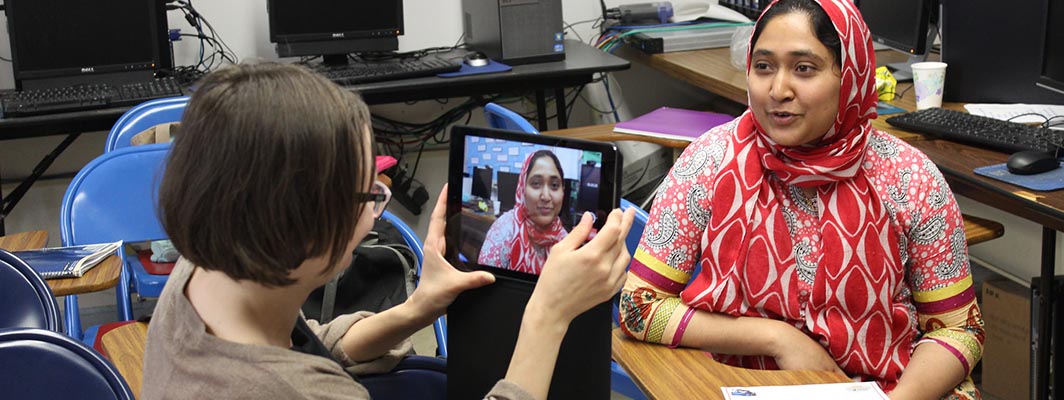
Educators are fundamentally learners, as well as masters of assessing and adjusting learning opportunities. Unfortunately, most learning opportunities offered are static, prescriptive, or limited (and limiting)—not contextualized, personalized, or responsive. This, to me, is one of the greatest faults in our educational systems today, and it leads to high attrition rates as it de-professionalizes teachers, failing to account for the diverse experiences, intellect, and heart they bring to their work. Yet, it is a challenge that can be overcome, and educators themselves can lead the way.
This is among our goals at the Carey Institute for Global Good’s Center for Learning in Practice and is chief among my tasks as the program manager for our Refugee Educator Academy. We aim to support refugee educators at all levels, from administration and program design to classroom teaching in pre-K-12 settings, as well as in higher education institutions and adult learning centers.
This is something I would have welcomed while in the classroom. I was actively learning how to become more responsive to the cultures and languages of my immigrant and refugee students, to help develop and sustain their rich and complex multicultural identities, and to attend to their social and emotional learning. This work and learning happened throughout the school day as I listened to my students and adjusted lessons to connect to their talents and interests and to meet their goals and needs. It also extended long into the evenings, weekends, and school breaks as I read, discussed with friends and colleagues, considered, tested ideas, and studied. All of this was both necessary and a welcome intellectual challenge.
It was unrecognized labor, however, and was largely imperceptible to school, district, state, and federal leaders focused on standardized test scores. I wanted and sought opportunities to more deeply engage with my learning and to focus my thinking around particular issues to challenge and demonstrate my teaching, learning, and intellectual capacities and competencies. I found this opportunity through the National Board certification process. I would have loved micro-opportunities for reflection and articulation of my practice, too. Micro-credentials offer educators that opportunity.
Creating a portfolio of work related to social and emotional learning and trauma-informed systems, or a portfolio reflecting my efforts to increase my cultural proficiency and offer culturally relevant, responsive, and sustaining pedagogies to my students, would have propelled my work forward, especially in those middle years of my career when I was pushing up against the boundaries of what I had learned in my Teaching English to Speakers of Other Languages master’s degree program, what my school was offering in terms of curricular choices and challenges, and what my community of students and parents were asking for and deserving of.
By documenting and sharing our work, we not only build our own skills and confidence, but we also begin to make the invisible visible. We can help others better understand what it is we do as educators, and in so doing, we may garner greater support for our work and for the students we teach. We can reclaim our professionalism and our expertise and demonstrate what, precisely, that means. This is a unique moment in teaching and learning, and this moment is ours to seize. It is time for competency-based learning through micro-credentials to extend our own learning so that we are able to best support our students’ learning.
Get feedback on your professional learning and start earning micro-credentials today by visiting our website.